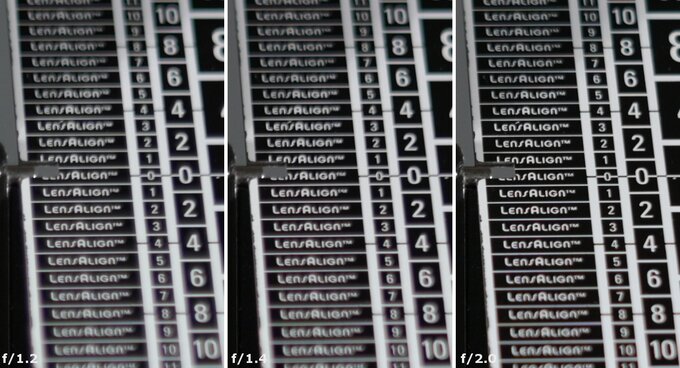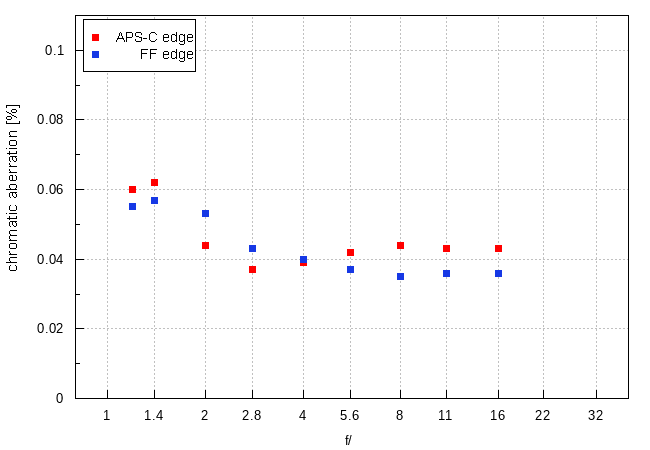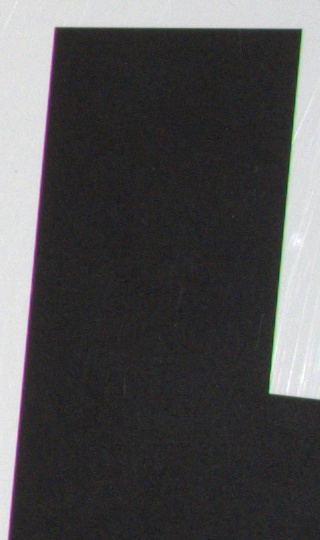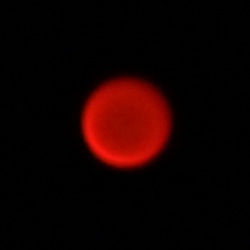Venus Optics LAOWA Argus 28 mm f/1.2 FF
5. Chromatic and spherical aberration
Chromatic aberration
1.2/28 parameters are usually very demanding when it comes to correction of longitudinal chromatic aberration and yet the Argus manages here really fine. You can't spot any out-of-focus colouring even at the maximum relative aperture so the performance in this category we assess really high. |
In case of lateral chromatic aberration the situation is equally good – a graph below presents its performance depending on aperture value and used detector.

Please Support UsIf you enjoy our reviews and articles, and you want us to continue our work please, support our website by donating through PayPal. The funds are going to be used for paying our editorial team, renting servers, and equipping our testing studio; only that way we will be able to continue providing you interesting content for free. |
- - - - - - - - - - - - - - - - - - - - - - - - - - - - - - - - - - - - - - - - - - - - - - - -
As you can see, the aberration is similar on edges of both detectors and it decreases on stopping down. Even its maximum results, near 0.06%, shouldn't worry you at all because they still fit low levels. Once again the Argus should be praised here.
p>
| Nikon Z7, RAW, f/1.2 | Nikon Z7, RAW, f/8.0 |

|

|
Spherical aberration
First photos of this chapter don't show any distinct focus shift effect but weak image quality on the edge of the frame doesn't make it easy to spot it either. It's really difficult to assess where the depth of field really ends.Some problems with correction of spherical aberration can be noticed in circles of light we got before and behind the focus. You can spot a quite classical symptom with soft edges in one circle and a brighter rim in the other. As if it wasn't enough, that rim doesn't seem completely symmetrical either.
| Nikon Z7, f/1.2, before | Nikon Z7, f/1.2, after |

|

|






